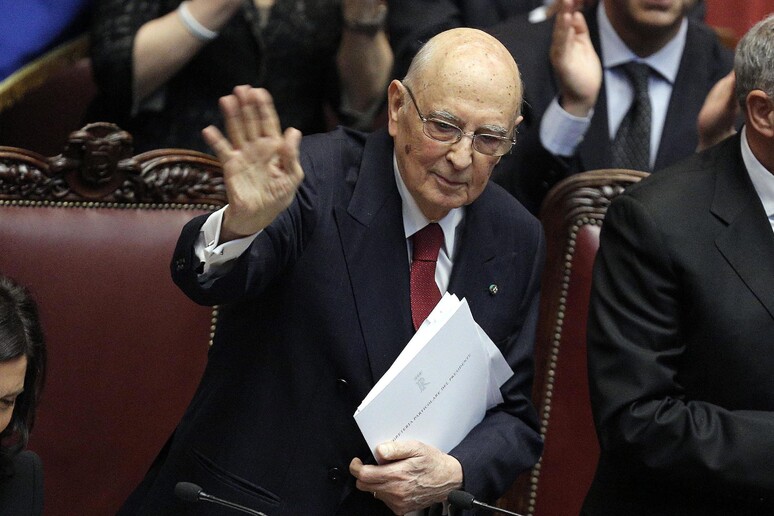The two-time former president Giorgio
Napolitano, one of Italy's most respected political figures, has
died in a Rome clinic aged 98, sources said.
His condition had been critical for some time.
Born in Naples on June 29, 1925, Napolitano served as the 11th
president of the Italian Republic from 2006 to 2015, and was the
first head of state to be elected for a second mandate in 2013,
as well as being the country's first post-Communist president.
A former militant in and then leader of the reformist wing of
the Italian Communist Party (PCI) until the establishment of the
Democratic Party of the Left (PDS) in 1991, as interior minister
in the 1996-1998 centre-left government of Romano Prodi he gave
his name to Italy's first comprehensive immigration law, the
so-called 'Turco-Napolitano', in 1998.
A law graduate from the University of Naples in 1947, Napolitano
was first elected to the Lower House in 1953 and went on to
represent his native Naples constituency almost without
interruption until 1996.
His long political career also took him to Strasbourg as a
member of the European Parliament from 1989 to 1992, before his
election as Speaker of Italy's Lower House from 1992 until 1994.
His dominance of the political scene in Italy - and especially a
key role in birthing the emergency Mario Monti-led government
amid a sovereign debt crisis in 2011 - earned him the nickname
King George.
This was not affectionate for many on the right who said he
helped engineer the end of Silvio Berlusconi's final government,
allegedly colluding with European authorities.
But he regularly topped polls of Italy's most popular
politicians.
In 2005 Napolitano was appointed life Senator by then President
of the Republic, Carlo Azeglio Ciampi, his predecessor as head
of state and guarantor of Italy's post-war antifascist
constitution.
A life-long Anglophile, Napolitano spoke fluent English and
lectured at several American universities in the late 1970s.
During his long prominence in the PCI he often broke with party
orthodoxy and criticised the Soviet Union, in particular over
its invasion of Afghanistan in 1980.
ALL RIGHTS RESERVED © Copyright ANSA











